Cross Sector
March 24, 2023—Cultivating a resilient cleantech ecosystem is critical to combating climate change and realizing a zero-carbon future. If we’ve learned anything from the natural world, it’s that resilience stems from diversity. Fortunately, there is increasing recognition of the value diversity can bring to the space, and the unique contributions that women can make.
The challenges facing the environment are complex and multifaceted, requiring a range of perspectives and expertise to address. IN² is proud to bring together entrepreneurs, researchers, and executives with diverse backgrounds and experiences to create a low-carbon future.
This Q&A with some of the amazing female entrepreneurs and business leaders involved with the Wells Fargo Innovation Incubator (IN²) portfolio honors Women’s History Month.
Trish Cozart, Director of Innovation and Entrepreneurship Center and IN², National Renewable Energy Laboratory (NREL)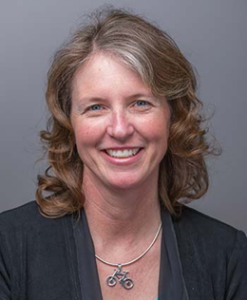
Q: Describe your career path and the journey to your current position.
A: My career path was rooted in science, layered with strategic communications and business experience, and then developed with management and leadership capabilities. That’s the academic answer. The real journey is written between the lines. Every experience—from volunteer work, to raising children, to starting businesses, to illness and injury—taught me something valuable—especially the failures. Knowledge and education were the least important parts. Discernment, integrity, critical thinking, and relationship building are the real gold nuggets in the journey and that takes time, vulnerability, and practice. The journey can’t be rushed.
Q: Which famous women inspire you?
A: I’m inspired by anyone who thinks of a great idea and then is brave enough to take the risk to try it. I’m inspired by people who are told “you can’t” and then say, “watch me.” Bobbi Gibb comes to mind—trailblazer, runner, artist, and scientist—all things I love, too.
Robyn Luhning, Chief Sustainability Officer of Wells Fargo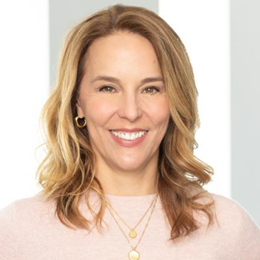
Q: Describe your career path and the journey to your current position.
A: I had a desire to make tangible, positive societal impacts at an early age and my career path has followed that theme. Looking back on my experience in the U.S. Peace Corps forming a women’s cooperative in Madagascar to support eco-tourism, my work with corporations on environmental and sustainability issues and all the way up to today as Chief Sustainability Officer for Wells Fargo—it’s always been about creating a positive impact. That is why I value my engagement with IN2. Supporting entrepreneurs and scalable solutions to address the sustainable production of agriculture and housing affordability is creating positive impacts for entrepreneurs, for communities and for our world.
Q: What advice would you give to your younger self?
A: Embrace the idea of taking risks and “failing fast.” Admitting failure was difficult earlier in my career, especially because I have always been someone who thrives when getting things done—it’s part of that desire to create impact. Early on, I felt the need to know the outcome before leaning into a new change or initiative. In an area like sustainability, where the pace of change is head-spinning, we need to put one foot in front of the other even when we don’t know the ultimate outcome or solution. Looking back, I’d tell myself that it’s OK to make mistakes, as long as you learn from them and move on quickly to the next challenge.
Karla Roeber, Vice President of Public and Government Affairs at Donald Danforth Plant Science Center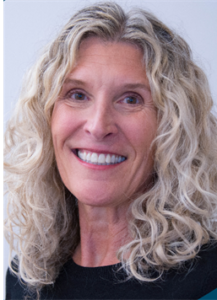
Q: Describe your career path and the journey to your current position.
A: I caught the public affairs bug early in my career when I worked on Capitol Hill in Washington, D.C. and then in St. Louis, Missouri where I served as the director of Senator Jack Danforth’s district office. Since then, I have dedicated my career to harnessing civic leaders, government officials, nonprofits, and the media to improve communities and our planet.
Q: What sorts of gender-related obstacles or biases have you encountered in your career and how did you overcome them?
A: I was fortunate to have two amazing women mentors early in my career who taught me the best way to overcome obstacles or bias is to demonstrate professionalism, work hard, and develop a reputation that you can produce results.
Armelle Coutant and Candice Delamarre, co-founders of Kit Switch
Q: Can you tell us about your journey to co-founding Kit Switch?
Candice: My expertise in building energy and systems engineering and my passion for social justice and circular economy led me to co-found Kit Switch after completing my master’s degree at Stanford University in 2021. I now act as the chief operating officer.
Armelle: I have a background in Biology and Architectural Design, and worked at a general contractor before co-founding Kit Switch with Candice. I was always fascinated by how urban spaces could be leveraged to not only minimize carbon impacts, but also as an opportunity for people and ecosystems to heal and regrow. Our shared vision to give underutilized buildings a second life as sustainable homes brought us together, and we founded Kit Switch in 2020.
Q: What sorts of gender-related obstacles or biases have you encountered in your career and how did you overcome them?
Armelle: We are fortunate to be surrounded by women and mentors who ran so we could walk. We still do come up against biases in our work, particularly as young women creating a new business in a male dominated industry, but a lot of my drive comes from co-founding Kit Switch with a team of women I admire. Realizing that we do not stand alone and that opening up to and leaning on one another can be more of a strength than a weakness, has been an important personal arc towards weathering the obstacles.
Candice: Working in the construction industry, it has sometimes been challenging to be a young woman instigating change, but it has also been extremely rewarding! To overcome these biases, I’ve used benevolence and curiosity. Despite gender differences, there are other commonalities one can share with another. In an industry in which communication is not nurtured as much, I believe it has made a difference and opened many doors to learn from others and share my skills and passion.
Tania Seger, CEO of Plastomics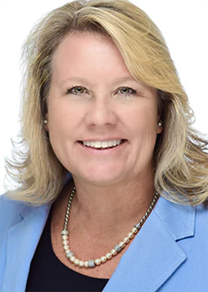
Q: Describe your career path and the journey to your current position.
A: I have always been drawn to roles that advance technology for the betterment of society. I began my career in the wireless telecommunications industry and was part of the second cellular system to launch in the U.S. Later, as the owner of a fourth-generation farm, I was motivated by the need to feed a growing population. This led me to spend the last half of my career with Monsanto/Bayer, where I participated in many innovative product advancements, including one of the first digital agriculture platforms. It is my passion to improve farm productivity and eliminate food scarcity that led me to my current position as CEO of Plastomics.
Q: How can we encourage more women to become involved in the cleantech industry?
A: The way I’ve found most successful in encouraging more women to join ag or cleantech is for other women to willingly advocate and encourage them. Starting this process at an early stage of a woman’s career is essential. This enables them to observe successful women leaders, talk about the not-so-pleasant biases they encounter and more importantly build the confidence to persist and lead fiercely.
Q: Are there any unique perspectives or skills you think women need to possess if they want to start their own company?
A: The most crucial skills for starting a company are perseverance and confidence. Believing in oneself and not giving up is essential. Having a sound network of trusted advisors is also crucial, so good networking skills are a must!
Daphne Pruess, CEO and member of board of directors, CarbonBook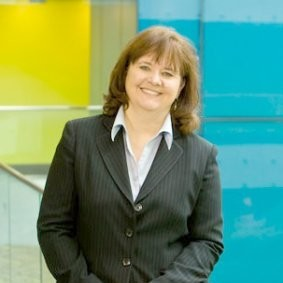
Q: Describe your career path and the journey to your current position.
A: I started as a research scientist and pursued an academic career, continuing as a professor at the University of Chicago for 10 years. I then spun out a company focused on a water-conserving crop, and ran and grew that for 10 years to an exit. Subsequently, I have been leading and advising companies in the agriculture and food space that are reducing carbon and creating innovations with plant-made products.
Q: How would you describe the current state of representation of women in the cleantech industry?
A: It is far too low. With women comprising at least half of graduates from business school and Ph.D. programs, they are underrepresented in the industry.
Q: What sorts of gender-related obstacles or biases have you encountered in your career and how did you overcome them?
A: In general, investors spend more time on risk assessment with women-led endeavors, which creates a disadvantage.
Maggie Kavalaris, Founder of Terviva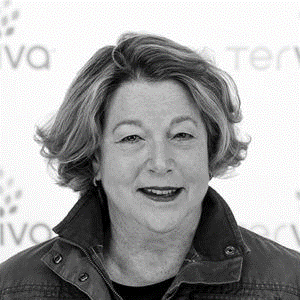
Q: Which female entrepreneurs/businesswomen inspire you?
A: I hold Cristina Morgan, vice chair of technology at JP Morgan, Grace Hopper, computer programming pioneer, Alice Waters, farm-to-table chef and restaurateur, Mary Barra, CEO of General Motors, and Indra Nooyi, former CEO of PepsiCo, in high esteem.
Q: How can we encourage more women to become involved in the cleantech industry?
A: In order to attract more women entrepreneurs into cleantech, we must give them equal and adequate access to private equity as they form and grow new ventures.
Q: How would you describe the current state of representation of women in the cleantech industry?
A: Cleantech is more hospitable to women than high tech, but the representation continues to lag the percentage of the population which women represent. Women are 51% of the population, and yet we attract 5% of the private equity available for new ventures, notwithstanding the fact that we start and succeed at leading companies as often or more often than men. Having said that, cleantech and other impact companies attract and retain women at a slightly better rate than high tech. Why? Because women care and want to change the world, and we are damn good at it.
Paving the Road for and Inclusive and Sustainable Future
Of course, simply having more women in the cleantech startup space is not enough in and of itself. To truly leverage the benefits of diversity, it is important to create a culture that is inclusive and supportive of all individuals, regardless of their gender, race, or background. This means actively seeking out diverse perspectives, valuing and celebrating them, and ensuring that everyone has a voice and a seat at the table.
Ultimately, the cleantech startup space is one that holds immense promise for addressing some of the most urgent challenges facing our planet. By embracing diversity and the unique contributions that women can make, we can help ensure that these companies are able to reach their full potential and make a meaningful impact in creating a more sustainable future for us all.
